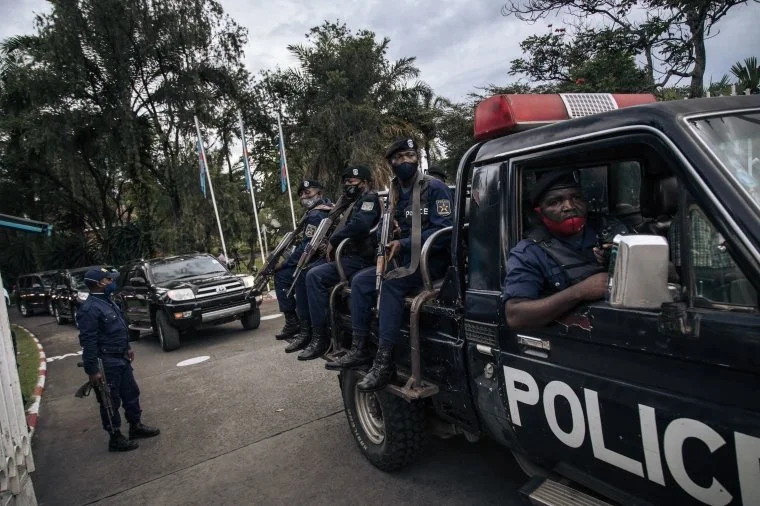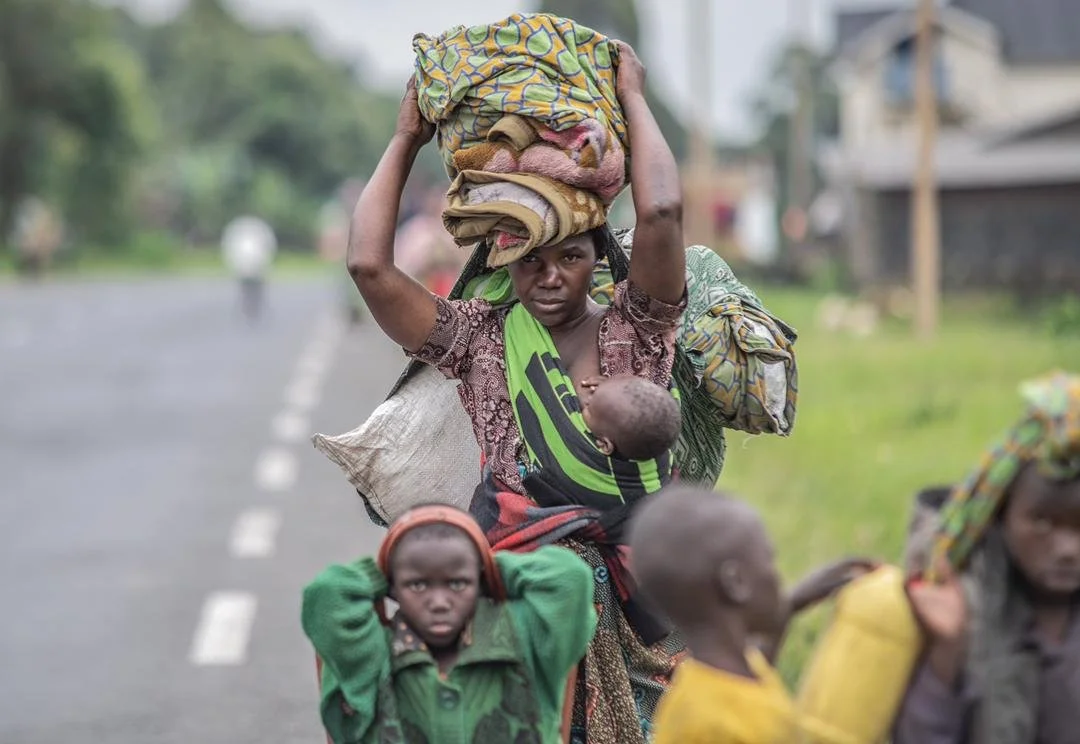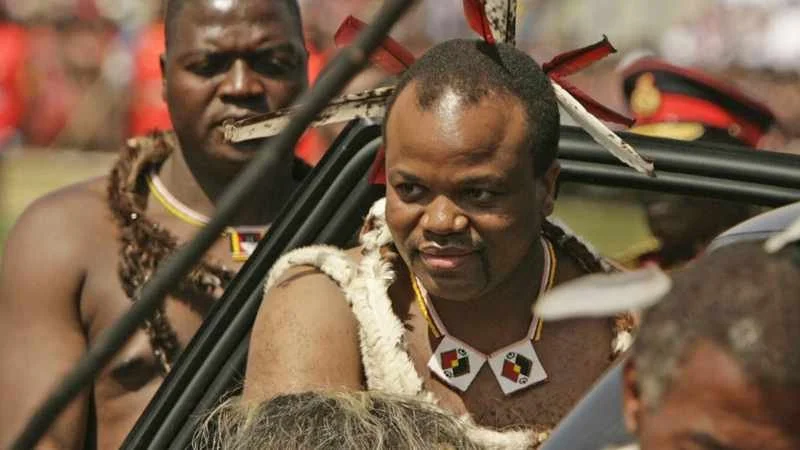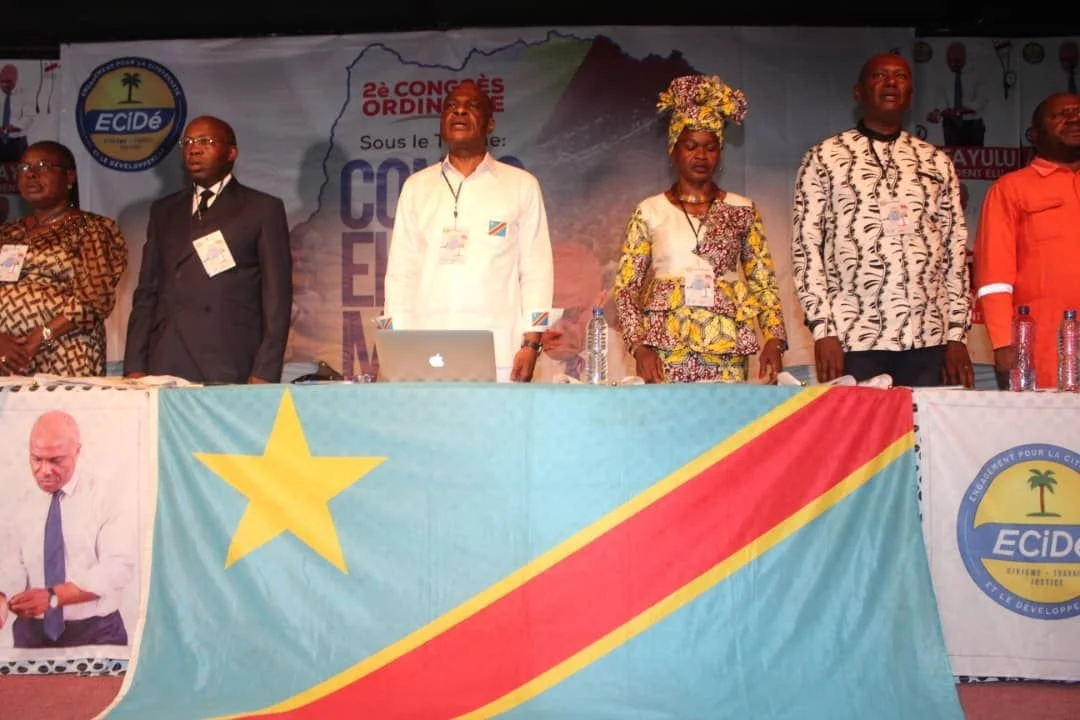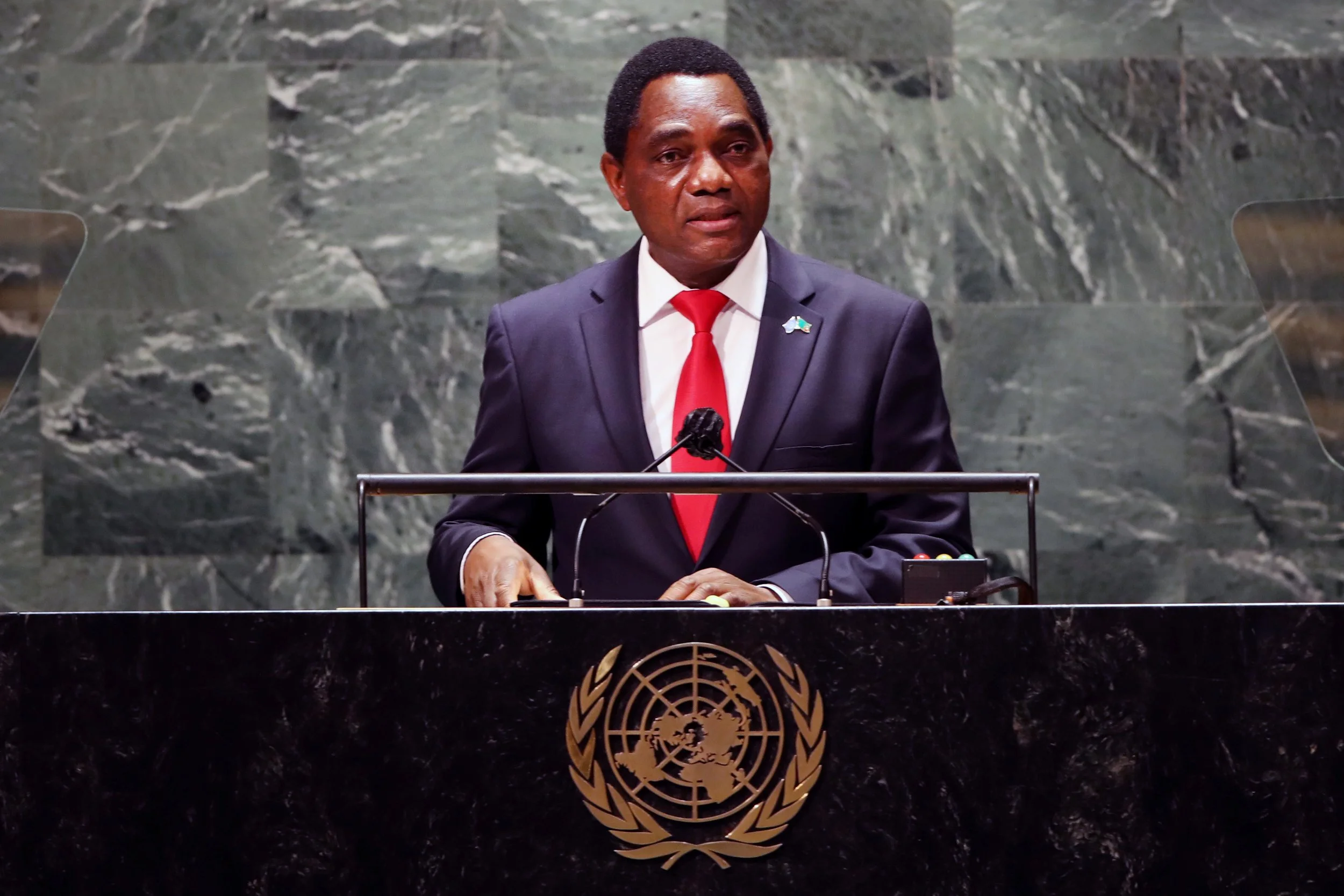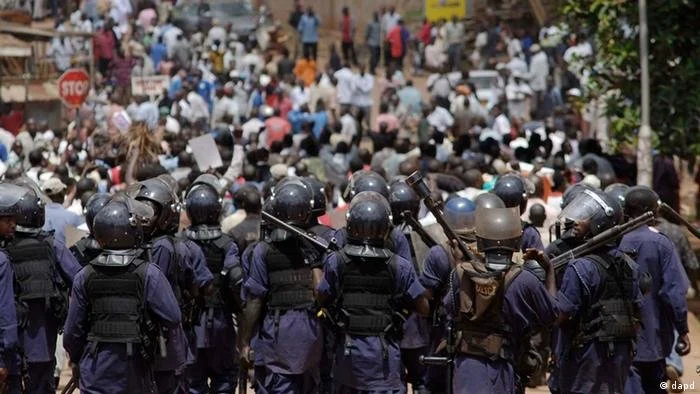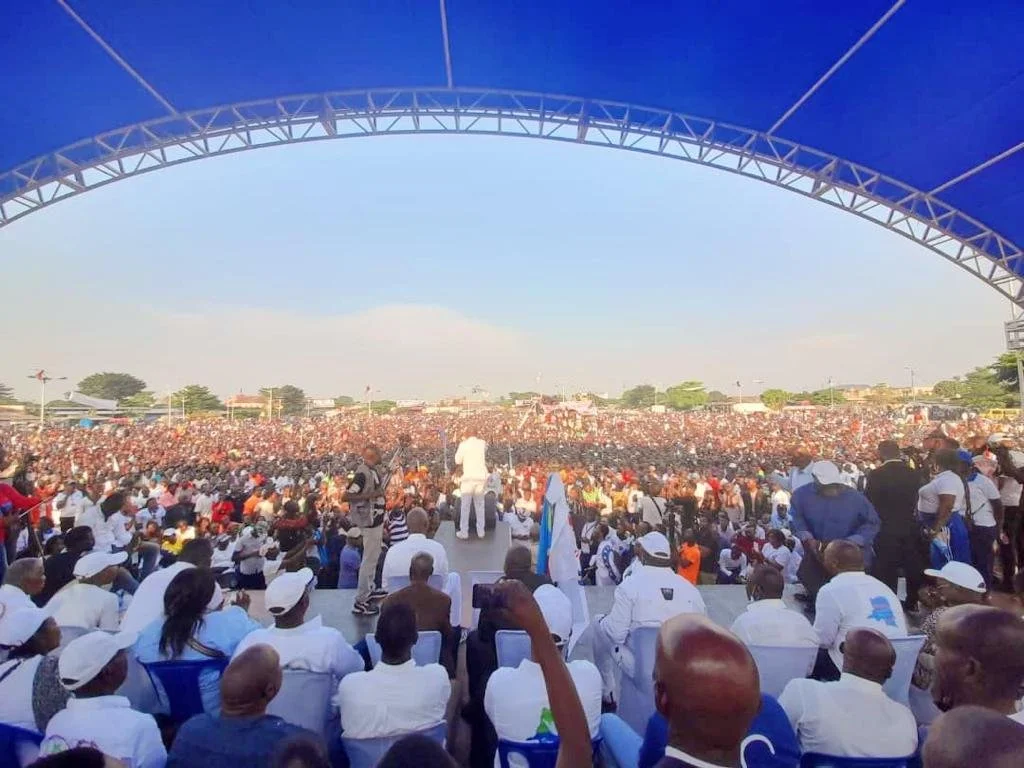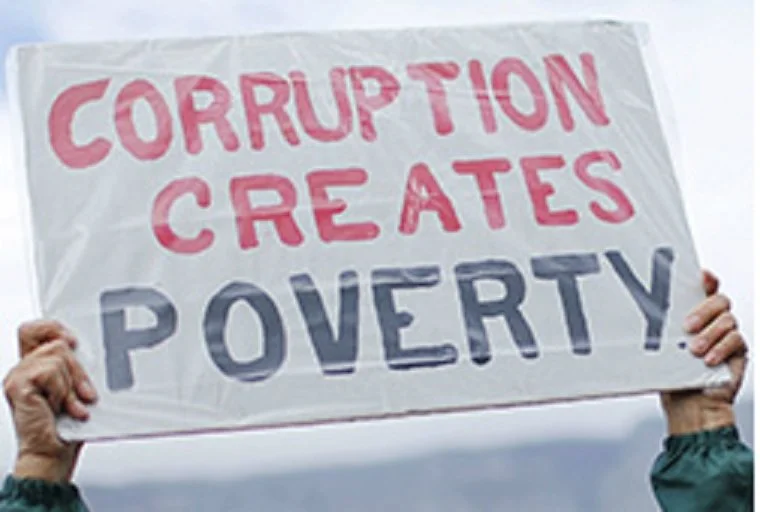In this special guest post, Djibouti’s heralded pro-democracy leader, Daher Ahmed Farah, announces his return from exile. The time has come once again, he writes, to join his comrades and party colleagues in the struggle for human freedom despite the inevitable threats he will confront. He calls upon fellow democrats worldwide to stand up with him at this crucial and personally harrowing time.
Broken Promises and Failures: Tshisekedi's First Term in DR Congo
In this guest post, activist and researcher Jean-Michel Nlandu writes on the tumultuous tenure of Felix Tshisekedi in the Democratic Republic of Congo, which has been marked by a crackdown on the independent press and an increase in political prisoners, which have combined to spark fears of a “revival of a police state.”
Ugandans Seeking Democracy Feel Betrayed by U.S. Policy
It is undeniable that the United States government is aware that Uganda is under a dictatorship, and has evidence of atrocities committed by the Museveni regime, writes Ugandan diaspora leader Daniel Kawuma. That Museveni and other autocrats across Africa are invited to Washington this week is not only bad optics, but bad policy as well.
In DR Congo, Inept Leadership Compromises Safety and Security
Congolese human rights activist Stewart Muhindo writes on the deteriorating security situation that prevails in the eastern DR Congo, a reality exacerbated by an inept government at home, one the one hand, and by violent rebels backed by Congo’s neighbors, on the other. There is a way out of the morass, however, and it begins with long overdue governance and security reforms at home.
Uganda: Ending Torture and Impunity Requires More Than Promises
In this guest post, human rights lawyer Bwambale Asiimwe Micheal writes on Uganda’s epidemic of torture and the impunity for perpetrators that prevails in the country — this, despite the repeated pledges and empty promises made by government officials at global meetings, including the recent U.N. Committee against Torture in Geneva.
Insecurity Threatens to Derail Nigeria’s Feb. 2023 Elections
Nigeria is experiencing the highest levels of insecurity since the country’s transition to democracy in 1999 — and available evidence shows that states with high levels of conflict tend to fare worse at conducting credible elections. In this week’s guest post, Santiago Stocker takes stock of the many challenges facing Nigerians today and proposes tested solutions that could potentially strengthen the country’s democracy at a critical time.
Silencing Dissent in Uganda: Analysis of the Computer Misuse Amendment Bill
In this week’s guest post, Ugandan lawyer Bwambale Asiimwe Micheal, writes on the recently passed Computer Misuse Amendment Bill. Available evidence suggests that this is yet another politically expedient ploy by legislators to clamp down on basic human rights, further entrenching repression and the ruling regime’s political dominance.
Southern Cameroons: Five Years after War Broke Out
As the U.N. General Assembly commemorates the 30th anniversary of the adoption of the Declaration on the Rights of Persons Belonging to National or Ethnic, Religious and Linguistic Minorities, the issue of Southern Cameroons continues to loom large. This week’s guest post is from Cameroonian writer Tony Vinyoh on people asserting themselves and attempting to claim their basic rights despite frightening repression.
9/11’s Anti-Human Rights Legacy in eSwatini
Twenty-one years on, the legacy of the terrorist attacks of 11 September 2001 still reverberate across the world. The Kingdom of eSwatini — located in Southern Africa and the continent’s last absolute monarchy — is testament to this fact. The country’s Suppression of Terrorism Act continues to be used in a wholly sinister manner: stifling dissent, crushing opposition, and intimidating civil society and the independent press. The time is long overdue for reform.
'Lawfare' in Zimbabwe: Attacks on the Political Opposition Ramping Up
In this guest post, Zimbabwean journalist Chris Muronzi details the escalating and coordinated attacks on the political opposition in Zimbabwe as the country heads towards a hugely important election in 2023. If history is any guide, these targeted arrests and detentions will likely increase and become much more brazen as campaign season gets underway.
The Possibilities and Promise of an Indivisible DR Congo
The main opposition leader in the Democratic Republic of Congo, Martin Fayulu, reflects on his recently concluded party congress, writing that there is nothing Congolese can’t achieve when uniting in common purpose. This is a critical endeavor today, as the Congo and its people are staring down a host of significant and mounting challenges — both at home and from its neighbors.
After Years of Stagnation, Zambians Are Experiencing Real Change
Under President Hakainde Hichilema, the environment in Zambia has drastically changed in a mere 10 months since he assumed office. For Zambians, this amounts to much more than a changing of the guard – it is a welcome breath of fresh air. And slowly but surely, writes Choolwe Chibomba, the international community is beginning to take notice.
Zimbabwe's PVO Act: Another repressive tool in the hands of government
Elections are once again approaching in Zimbabwe, and the oppressive government of Emmerson Mnangagwa is working overtime to unfairly tilt the political playing field in its favor. A key element of government’s strategy is the Private Voluntary Organizations (PVO) Amendment Bill, which would provide authorities with overwhelming power to interfere in the work of civic and human rights groups, including those that focus on elections. Here, David Kode from CIVICUS warns of the inherent dangers and the collective need to stand up for human rights in Zimbabwe.
The Brutal Targeting and Torture of Critics in Uganda
The oppressive regime of Yoweri Museveni in Uganda – now in his 36th year in power – always finds an excuse to give its crimes a facade of legitimacy, labeling its victims as ‘rioters,’ ‘rebels,’ or ‘tribalists.’ The regime’s international donors have ignored this pandemic of violence and gaslighting for too long — there must finally be consequences.
Crisis in Southern Cameroons: Those who pledge to destroy the architecture of oppression keep fortifying its walls
The crisis in Southern Cameroons has received considerable attention due to the persistence and organizing power of citizens, as well as among political elites. At the same time, however, solutions to ending the deadly conflict have been equally hard to achieve because of multiplying divisions and internal fights. Ultimately, something has to give.
Equatorial Guinea: Trapped in a Vicious, Endless Loop
In this week’s guest post, activist Joaquín Elo Ayeto writes on the tragic state of affairs in Equatorial Guinea, home to the longest-ruling dictatorship in Africa. For over four decades, the Obiang regime has ruled with ruthless repression, impoverishing citizens while brazenly enriching themselves. This article is published in collaboration with the OCA Coalition, a group dedicated to exposing and fighting kleptocracy in Central Africa.
Despite Government Failures, there is Hope in Congo
The main opposition leader of the Democratic Republic of Congo, Hon. Martin Fayulu, writes on the nine-year anniversary of the Peace, Security and Cooperation Framework agreement. Little progress has been achieved since 2013, and in many ways, the situation in the country — and the wider region — has deteriorated. Nevertheless, the Congolese people have demonstrated resilience and there is hope moving forward.
For Angola, the EU-AU Summit Must Spur Urgent Reforms
In this guest post, Angolan journalist Goncalves Vieira writes that this week’s EU-AU Summit (Feb. 17-18) must urgently address the root causes of social problems in Angola — and elsewhere across Africa — which includes large-scale government corruption and the enriching of political elites at the expense of citizen populations.
A State of Siege in Democratic Republic of the Congo
This week's Africa Watch spotlights the ongoing insecurity and failed leadership evident in Democratic Republic of the Congo, as well as the related killings of civilians and peaceful demonstrators. Congolese researcher and activist Steward Muhindo outlines the dire situation and the need for immediate reforms.
Asset Recovery is Critical for Zimbabwe's Democratic Development
In Zimbabwe, it is currently estimated that $7 billion is illegally held in foreign bank accounts. Asset recovery is thus urgently needed, and essential, to create the foundations necessary for sustainable and democratic development. In this week’s Africa Watch post, Zimbabwean academic Dr. Prosper Maguchu explores these linkages, as well as the necessary role that domestic civil society can play in this important process.



